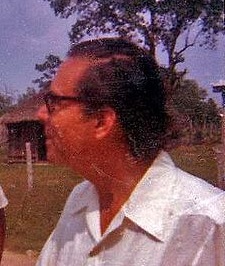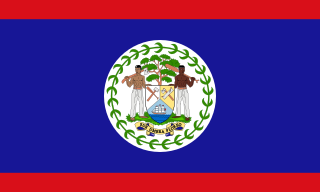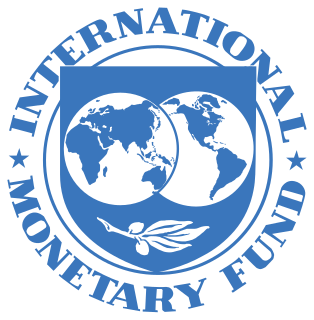
Said Wilbert Musa is a Belizean lawyer and politician. He was the Prime Minister of Belize from 28 August 1998 to 8 February 2008.

George Cadle Price, PC, OCC, was a Belizean statesman who served twice as the head of government of Belize from 1961–1984 and 1989–1993. He served as First Minister and Premier under British rule until independence in 1981 and was the nation's first prime minister after independence that year. He is considered to have been one of the principal architects of Belizean independence. Today he is referred to by many as the "Father of the Nation". Price effectively dominated Belizean politics from the early 1960s until his 1996 retirement from party leadership, serving as the nation's head of government under various titles for most of that period.

Sir Manuel Amadeo Esquivel, KCMG, PC is a Belizean politician. As leader of the United Democratic Party, he served as Prime Minister from 1984 to 1989, and then again from 1993 to 1998.

Dean Oliver Barrow is a Belizean politician who has been Prime Minister of Belize since 2008. He is also the leader of the United Democratic Party (UDP) since 1998. An attorney by trade, he served as Deputy Prime Minister and Minister of Foreign Affairs from 1993 to 1998 and was Leader of the Opposition from 1998 until the UDP won the February 2008 election. Barrow started his first term as Prime Minister after victory in the 2008 election. He started his second term after the UDP again won an election on 7 March 2012. He started his third term when the UDP won again on 4 November, 2015.
Jose Coye is a Belizean politician and a member of the People's United Party (PUP). He trained as a Chartered Accountant and worked as a customs officer before going into politics.

General elections were held in Belize on 27 August 1998. The result was a victory for the People's United Party, which won 26 of the 29 seats and Said Musa was elected as Prime Minister for the first time. Voter turnout was 90.1%, the highest since independence.

General elections were held in Belize on 4 September 1989. The result was a narrow victory for the People's United Party, which won 15 of the 28 seats. Voter turnout was 72.6%.

The Leader of the Opposition of Belize is an elected official who, according to the Constitution, "commands the support of those elected officials that do not support the Government." He or she speaks on behalf of the Opposition Members of Belize's House of Representatives.
Philip Stanley Wilberforce Goldson was a Belizean newspaper editor, activist and politician. He served in the House of Representatives of Belize as member for the Albert constituency from 1965 to 1998 and twice as a minister. Goldson was a founding member of both of Belize's current major political parties, the People's United Party (PUP) in the 1950s and the United Democratic Party (UDP) in the 1970s. He was also the leading spokesman of the hardline anti-Guatemalan territorial claims National Alliance for Belizean Rights party in the 1990s.
Francis William Fonseca is a Belizean politician who served as leader of the People's United Party (PUP) and as Leader of the Opposition of Belize from 2011 to 2016. First elected to the Belize House of Representatives from the Belize City-based Freetown constituency in 2003, Fonseca served as Attorney General and Minister of Education, Culture and Labour in Prime Minister Said Musa's cabinet until February 2008, when the PUP lost the general election to the opposition United Democratic Party (UDP). Fonseca was one of only six PUP representatives nationwide to retain his seat in the National Assembly in the 2008 election.
John Birchman Saldivar is a Belizean politician. A member of the United Democratic Party, Saldivar has represented the Belmopan constituency in the Belize House of Representatives since its creation in 2008. He was previously Area Representative for Cayo South.

A legislative election was held in Belize on 7 March 2012 to elect all 31 members of the Belize House of Representatives as well as offices in the various local governments. The election was run by the Elections and Boundaries Commission's Elections and Boundaries Department. Dean Barrow and his United Democratic Party (UDP) were re-elected, but lost eight seats to the opposition People's United Party (PUP) to maintain a slim 17-14 majority in the Belize House. The upper house of the Belize National Assembly, the Senate, was appointed after the election by the UDP-led government in accordance with the Constitution of Belize.

General elections were held in Belize on 4 November 2015 to elect members of the House of Representatives. On 28 September 2015 Prime Minister Dean Barrow announced that he had advised the Governor-General to dissolve the National Assembly and to fix Wednesday 4 November 2015 as the date for the next general elections.
Freetown is an electoral constituency in the Belize District represented in the House of Representatives of the National Assembly of Belize since 2003 by Francis Fonseca of the People's United Party. Fonseca served as PUP leader and Leader of the Opposition from 2011 to 2016.
Curl Osmond Thompson was a Belizean politician. Thompson served as an Area Representative in the Belize House of Representatives and as deputy prime minister. He was also interim leader of the United Democratic Party for a brief period in the early 1980s.
Derek Aikman was a Belizean politician. He served in the Belize House of Representatives as an area representative for the Freetown constituency in the 1980s and early 1990s.

The next Belizean general election will elect members of the country's House of Representatives. It must be held on or before 13 February 2021.













